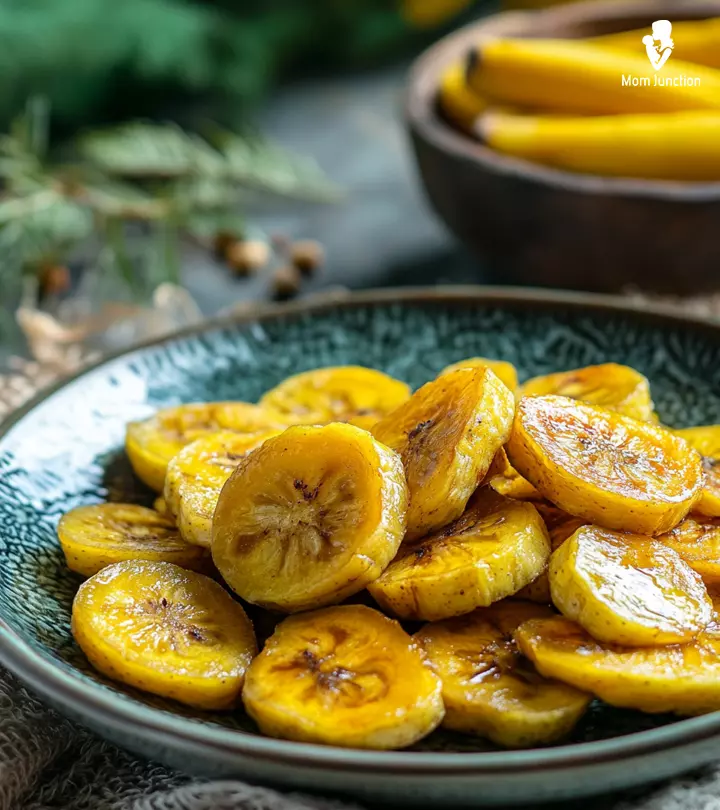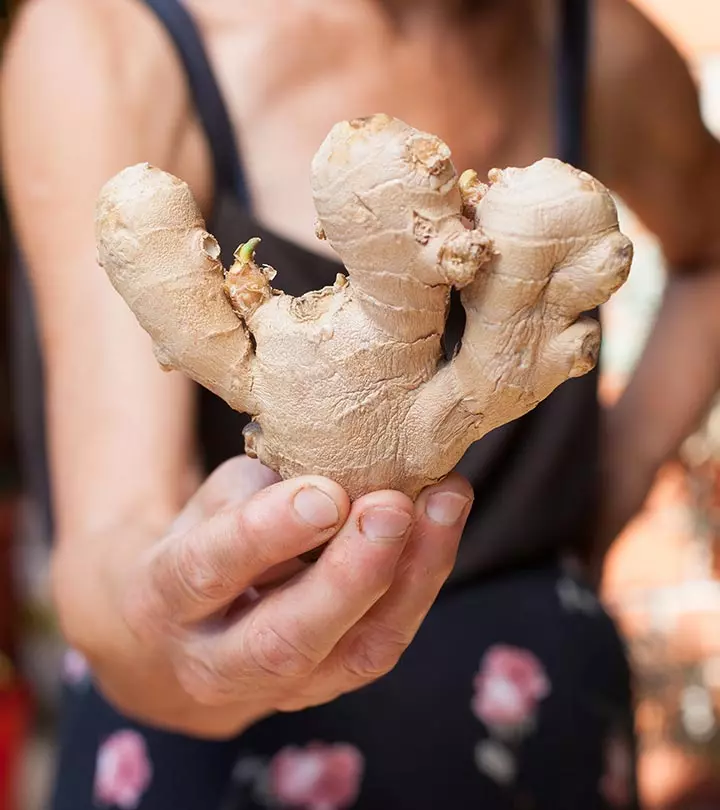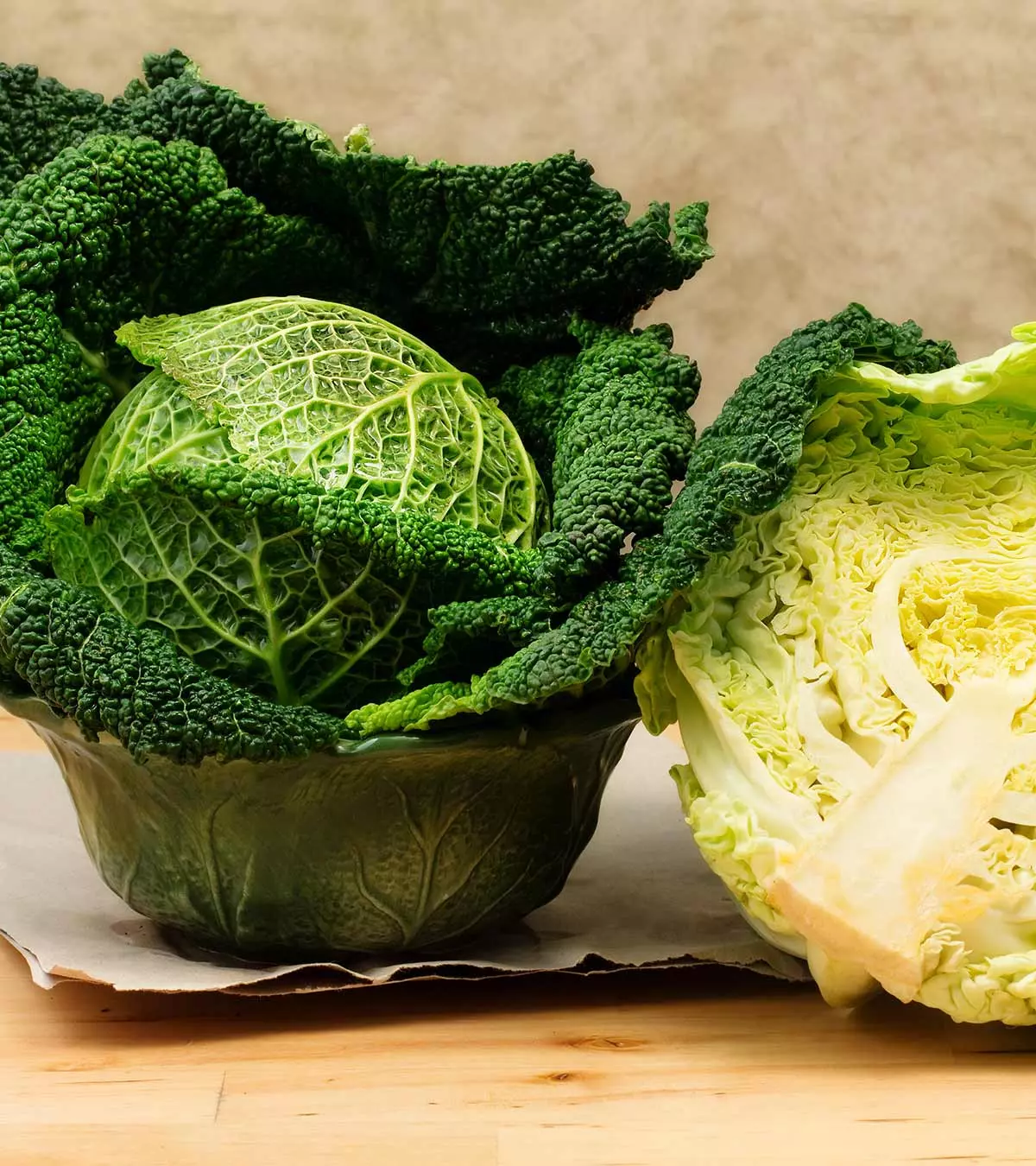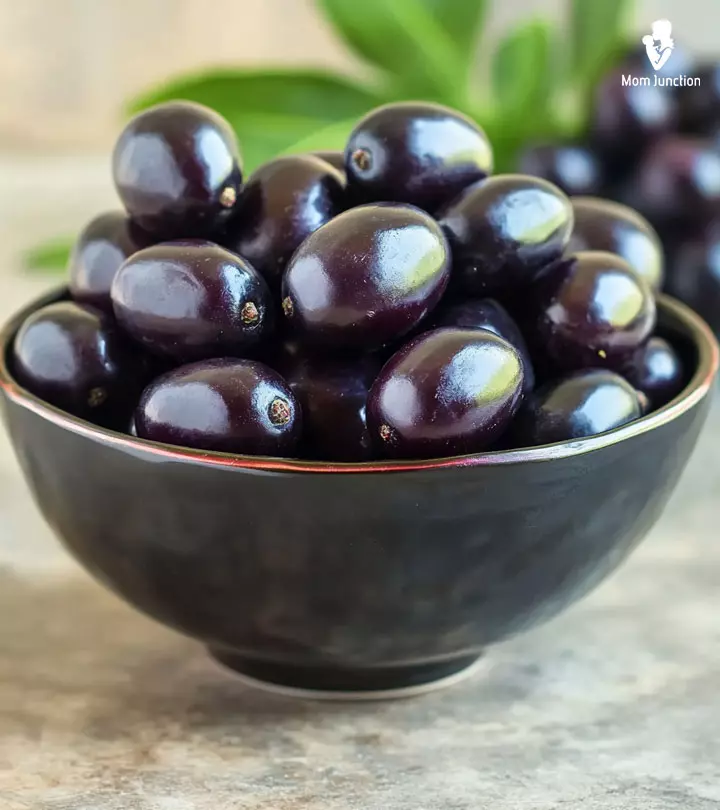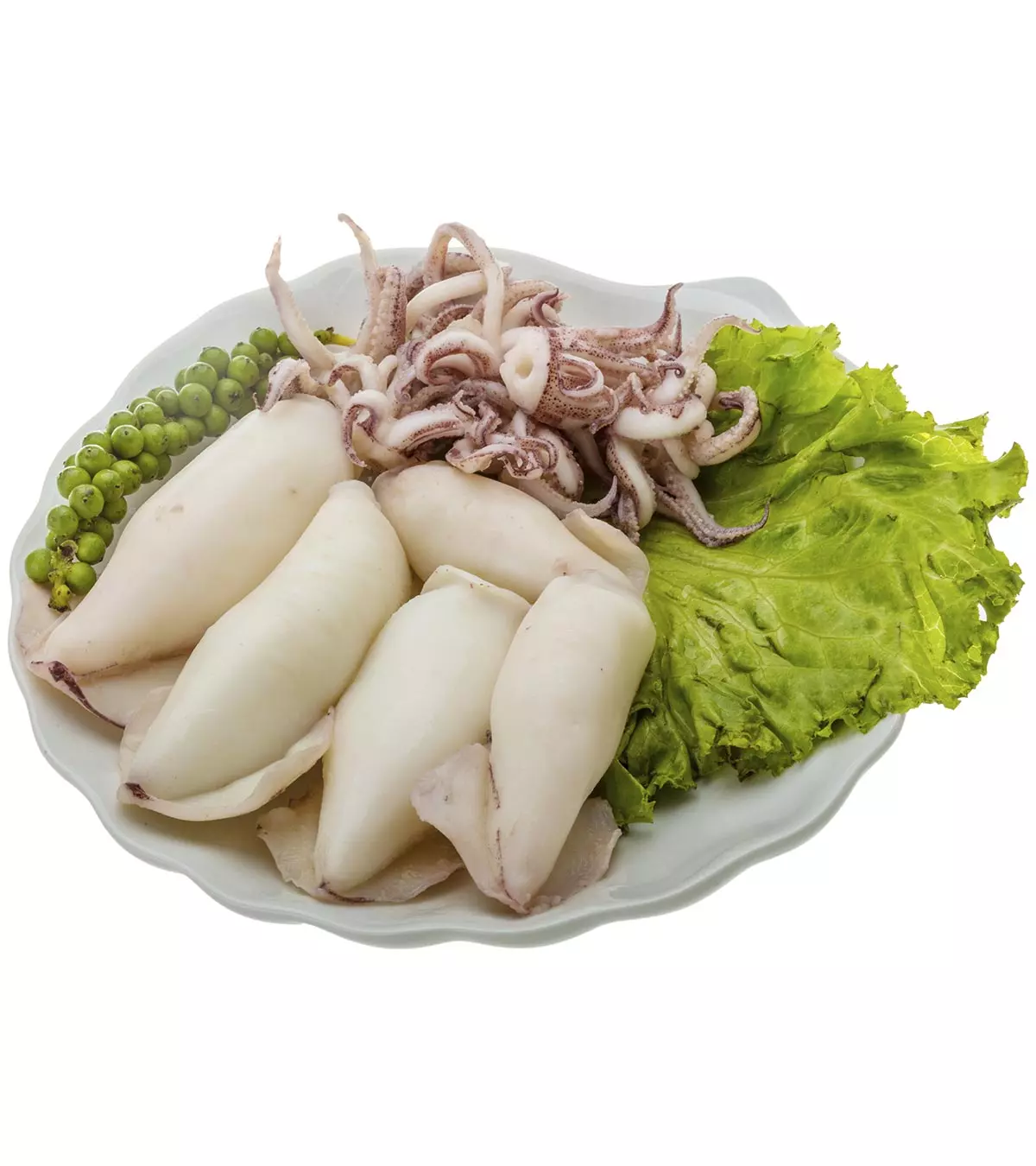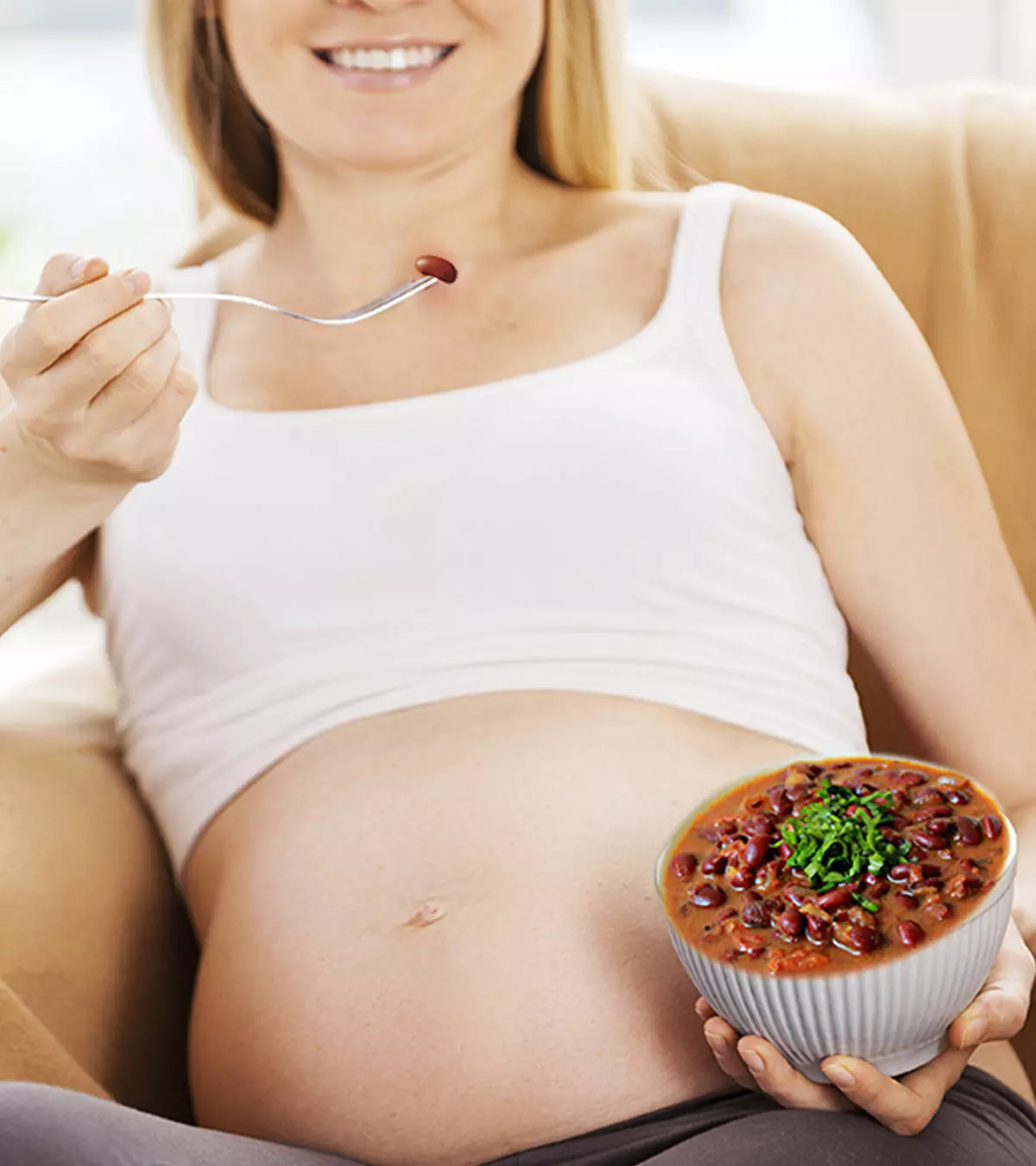
Image: Shutterstock
Dry fruits offer energy, vitamins, minerals, dietary fiber, and several bioactive compounds. Therefore, moderate consumption of dry fruits in pregnancy is important for a baby’s overall health and well-being. Dry fruits are a combination of nuts and dried fruits. Nuts are naturally found dried inside a hard shell and protective husk (1). Dried fruits are dehydrated, dry, shrunk, and nutrient-dense fruits removed from water content.

Moderate consumption of dry fruits in pregnancy is a part of a healthy and well-balanced diet. Read about the health benefits, side effects, precautions, and tips to add dry fruits to a pregnancy diet.
Read on to know the possible health benefits and side effects of consuming dry fruits during pregnancy.
Key Pointers
- Dry fruits can provide energy micronutrients, improve immunity, promote gut, bone, and heart health.
- Moderate consumption of dry fruits is recommended for a healthy and well-balanced diet.
- Pregnant women can consume half an ounce of nuts, dry fruits such as almonds, pistachios, and walnuts daily.
How Many Dry Fruits Can You Eat Daily?

Generally, half a cup of dried fruits and half an ounce of nuts (12 almonds, 24 pistachios, 7 walnut halves) a day are sufficient for most pregnant women (2) (3). However, each woman is different. Hence, the quantity of dry fruits you may consume each day during pregnancy depends on your daily total calorie intake and overall health condition. Consult a nutritionist or doctor to know how many dry fruits you can safely consume each day.
What Are The Health Benefits Of Dry Fruits During Pregnancy?
Nuts and dried fruits (with no added sugar) are energy-dense foods that contain various essential nutrients and bioactiveiAn element or compound that has a biological effect. compounds, which may confer several health benefits to you and your unborn baby upon regular consumption.
- Offer quick energy: A pregnant woman between 19 and 30 years requires 2000 to 2600kcal energy from the first to the third trimester of pregnancy (4). Data suggests that 100g of almonds, cashews, and walnuts give 575, 553, and 654kcal energy, respectively. 100 grams of dried Medjool dates and figs can provide 277 and 249kcal energy, respectively (5). While these dry fruits offer quick energy, be cautious how much you eat as their excess intake could cause unwanted weight gain.
- Provide micronutrients: Dried fruits, such as raisins, dried cranberries, prunes, apricots, dates, and figs, are a good source of vitamins and minerals, such as vitamin A, B, C, potassium, magnesium, phosphorus, and iron. On the other hand, nuts, such as almonds, pistachio, macadamia nuts, pecans, hazel nuts, brazil nuts, and pine nuts, provide vitamin E, vitamin K, and folate (5). Consumption of these nutrients can help support fetal growth and development and maintain a healthy pregnancy.
- Promote gut health: Dried fruits and nuts contain considerable amounts of dietary fiber that can help improve digestion and maintain healthy bowel movement, keeping constipation away. Fiber also works as prebioticsiAn indigestible food ingredient used by host microorganisms conferring health benefits. that promote probiotic growth (good bacteria), enhancing overall health and well-being (6). Since the fetus relies on the mother for nourishment, these positive effects of fiber intake are likely to benefit the baby as well.
- Strengthen immunity: Research shows that nuts and dried fruits contain several bioactive compounds, such as phenols, carotenoidsiA class of naturally occurring pigment possessing biological activities, such as antioxidant activity. , and phytosterolsiA plant-based compound similar to cholesterol that is known to reduce bad cholesterol (LDL) in the body. , which possess antioxidant and anti-inflammatory effects. These effects strengthen immunity and help counteract metabolic issues that cause chronic health problems such as type-2 diabetes (7).

- Fight nutrient deficiencies: Iron deficiency anemia during pregnancy is a widespread problem. Evidence suggests that regular consumption of nuts, such as cashews and pistachios, and dried fruits, such as prunes, can help enhance iron intake. Consuming raisins during pregnancy is another way to increase your iron levels. Since heme iron (iron from plant-based foods) has low bioavailabilityiThe extent to which a substance gets absorbed into the body. , ensure to consume it with vitamin C-rich foods, such as citrus fruits.
- Enhance bone health: Evidence suggests that dried fruits and nuts, such as prunes, cashew, peanut, and almonds, contain several nutrients, such as vitamin K, manganese, boron, copper, calcium, magnesium, copper, and potassium, that promote bone health (8) (9).
- Promote heart health: Research shows that nuts and dried fruit intake improve glycemic control, positively affecting cardiovascular health (5). Nuts and dried fruits’ antioxidant and anti-inflammatory properties come from healthy fats, such as PUFA (polyunsaturated fatty acidsiA type of dietary fat found in plant and animal food that can affect health through different mechanisms. ) and different bioactive compounds.
 Research finds
Research findsDried fruits and nuts are energy- and nutrient-dense foods that can be a good snack choice for pregnant women to help satiate sweet cravings and hunger pangs.
Possible Side Effects Of Dry Fruits During Pregnancy

“Dried fruits and fruit juices often contain higher sugar content than fresh fruits and juices. For those with diabetes during pregnancy, it’s important to monitor and limit their intake.”New York-based ob/gyn and maternal-fetal medicine specialist Dr. Kecia Gaither says,
Dried fruits are high in fructose, a natural sugar. Also, several commercial dried fruits are infused with sugar water or juice to enhance their palatability. Evidence suggests that consuming these dried fruits can cause calorie excess, resulting in unwanted weight gain. Besides these, below are some other side effects that dry fruits may cause during pregnancy.
- Gastrointestinal disturbances: Dry fruits can cause mild gastrointestinal problems, such as bloating and indigestion, in sensitive individuals. Hence, if you aren’t consuming dry fruits regularly before pregnancy, start slow. For instance, have a few dry fruits, say three to four pieces first, and then gradually increase. Also, consult your doctor before you start consuming dry fruits.
- Allergies: Dry fruits may cause allergic reactions and cross-reactivity, particularly in individuals with a family history of allergy to specific fruits and/or tree nuts. Also, dried fruits are often treated with sulfites to preserve the color of certain dried fruits, such as dried apricots. Sulfites could cause allergic reactions and intolerances in some individuals (10).
- Cross-contamination: Dried fruits and nuts, when stored improperly, can get contaminated with fungi. These microorganisms could release harmful chemicals that can cause severe health issues (11). Thus, you should take precautionary steps to ascertain the quality of the dry fruits you plan to consume.
Precautions To Take When Consuming Dry Fruits During Pregnancy
Here are some precautions you should take while you add dry fruits as part of your pregnancy diet.
- Opt for organic, non-preservative dried fruits from a trustworthy and reputable seller to minimize chemical exposure.

- Select packaged dry fruits over loose ones to avert the risk of insect and microbial infestation that may occur.
- Choose sun-dried dried fruits over those subjected to intense heat for drying. Dried fruits produced by intense heating may contain acrylamide, a neurotoxiniA synthetic or natural substance that negatively affects the nervous system. that can affect your and your baby’s health.
- Read the product label carefully and ensure that the dry fruits are free from additives and preservatives.
- Check the manufacturing and packaging dates to ensure that dry fruits aren’t too old. Dry fruits kept for too long may contain molds or bugs, especially if they aren’t stored correctly.
- Look for warnings stating that the dry fruits have been processed in the same facility as other allergens, such as peanuts. It will help make informed choices, especially if you have known allergies.
- Keep dry fruits properly packed in their packaging until use. Once the pack is opened, transfer dry fruits in an air-tight container and store in a cool, dark place, away from sunlight to prevent spoilage. You can store most dried fruits at 60°F (15°C) for up to a year and at 80°F (26°C) for six months.
Dry fruits are energy-dense. So practice portion control and eat dry fruits as guided by your nutritionist or doctor. Rather than eating the entire serving at a time, try dividing the portions throughout the day so that you can consume dry fruits as mini snacks.
Tips To Add Dry Fruits In Your Pregnancy Diet
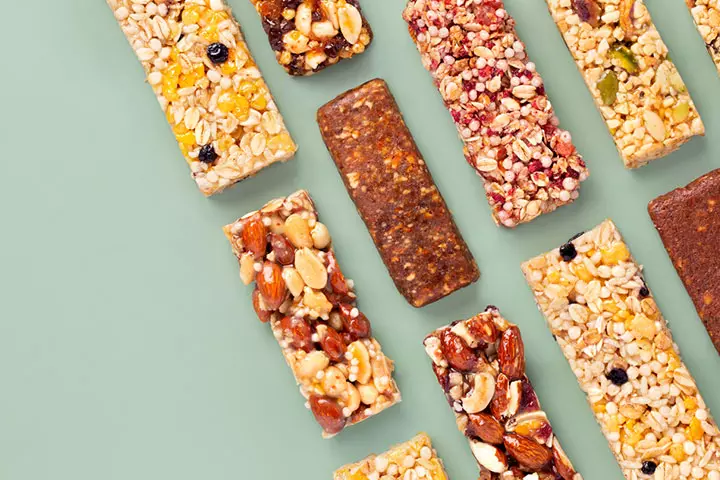
Here are some ways you can add dry fruits to your diet.
- Include a healthy snack composed of whole or chopped, raw or dry-roasted nuts, such as almonds and cashews, mixed with dried fruits, such as prunes, dried strawberries.
- Puree or mash dry fruits such as figs to make a delicious spread. Consuming figs during pregnancy can help curb sweet cravings and meet your daily micronutrient requirement.
- Add chopped, dry-roasted dry fruits such as dried apples, dried blueberries, and dried plums to salads, desserts, such as puddings, shakes, and smoothies.
- Make dry fruit powder and add it to milk, shakes, or smoothies. Alternatively, you can use the same powder to make granola bars or dry fruit balls for quick snacking.
- You can also incorporate dried seasonal fruit, such as dried mangoes, dried peaches, dried cherries, and dried pineapples in your diet.
- Add chopped dry fruits while baking bread and biscuits to intensify their nutritional value.
 Quick tip
Quick tipDry Fruit Milkshake Recipes For Pregnant Women
Enjoy these nutritious and flavorful dry fruit milkshake recipes that offer a burst of delicious flavors while providing essential nutrients for both the mother and the growing baby.
1. Fig And Apricot Shake
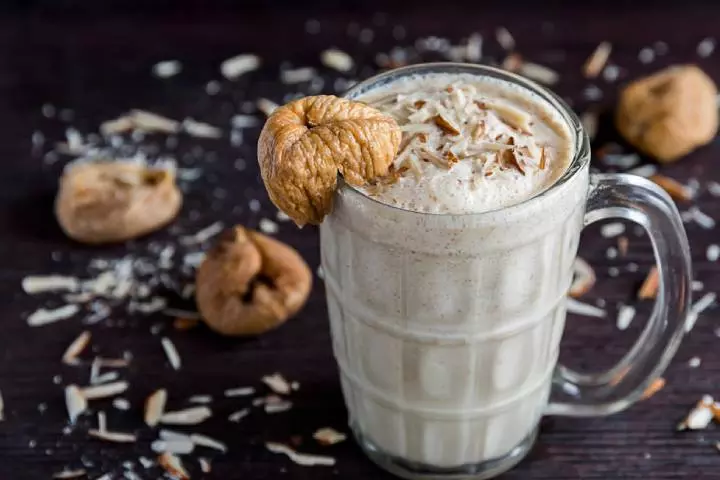
You will need:
- ¼ cup dried figs
- ¼ cup dried apricots (chopped and deseeded)
- 2 glasses of milk
- Almonds (chopped) for garnish
How to:
- Soak dried figs and apricots in ¼ cup of warm milk for 30 minutes.
- Add the soaked figs and apricots (with the milk) and the remaining milk and blend it into a smooth consistency in a blender.
- Pour the milkshake into a glass, add an ice cube if you like, and garnish it with chopped almonds.
2. Mix Dry Fruit Milkshake
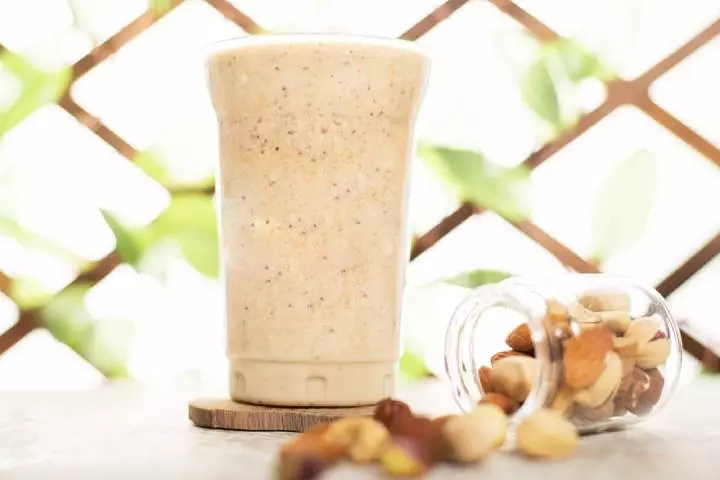
You will need:
- 5 dried figs
- 5 deseeded dates
- 5 each- almonds, cashews, and walnuts
- 10 each- raisins and pistachios
- 1.5 cup chilled milk
- ½ cup frozen milk
- Honey as per taste
- Vanilla essence
How to:
- Soak all the dry fruits and dates in warm water for 30 mins.
- In a blender, add all the soaked ingredients and make a paste.
- To the above paste, all chilled milk, frozen milk, honey, and a few drops of the vanilla essence. Blend it all into a smooth consistency.
- Pour the milkshake into a glass, top it with chopped dry fruits, and enjoy.
Dry fruits in pregnancy can provide you with energy and several essential nutrients, including bioactive compounds needed for optimal growth and development of the baby. Adequate nutrition is also needed for maternal health. You may add moderate amounts of dry fruits to your pregnancy diet. You may make trail mixes of various dry fruits to get maximum nutrients. Always purchase from trusted sources to ensure chemical-free and good-quality products. Although they are packed with nutrients, consume them in moderation.
Frequently Asked Questions
1. When should I start eating dry fruits during pregnancy?
You may include dry fruits in your pregnancy diet from the first trimester as these are good sources of nutrients and dietary fiber (12). However, avoid any dry fruit that causes allergies.
2. Which is better: kishmish or munakka in pregnancy?
Kishmish (golden raisins) and munakka (black raisins) are good during pregnancy. They are a great source of vitamins and minerals and help prevent cardiovascular diseases, constipation, hypertension, and gastrointestinal issues (13).
3. Which dry fruits are good for baby brain development during pregnancy?
Walnuts are great as they contain Omega-3 fatty acids, which are beneficial for brain development of the baby during pregnancy (16).
4. Are there any dry fruits to avoid during pregnancy?
There are no specific dry fruits that are advised to avoid when pregnant. However, it is best to avoid eating dry fruits with excess sugar coatings, dry fruits with lots of preservatives, and dried fruits with sulphites (to enhance their shelf life).
Infographic: Tasty Dry Fruit Recipes For Pregnancy
Dry fruits are a healthy option for pregnant women to keep their weight in check while receiving several nutrients. So if you want to incorporate them into your diet, try out these recipes below that are unique and delicious but quick and easy to make.
Some thing wrong with infographic shortcode. please verify shortcode syntax
Illustration: Dry Fruits In Pregnancy: Benefits Precautions And Tips

Image: Dall·E/MomJunction Design Team
References
- Nuts.
https://www.fs.usda.gov/wildflowers/ethnobotany/food/nuts.shtml - Fruits.
https://www.mobapbaby.org/Pregnancy-Guide/Ensuring-a-Healthy-Pregnancy/Nutrition/Eat-Right - Protein Foods.
https://www.marchofdimes.org/find-support/topics/pregnancy/eating-healthy-during-pregnancy - Dietary Guidelines for Americans, 2025-2025.
https://www.dietaryguidelines.gov/sites/default/files/2025-12/Dietary_Guidelines_for_Americans_2020-2025.pdf - Arianna Carughi et al; (2016); Pairing nuts and dried fruit for cardiometabolic health.
https://www.ncbi.nlm.nih.gov/pmc/articles/PMC4779204/ - High-Fiber Foods.
https://www.helpguide.org/wellness/nutrition/high-fiber-foods - Pablo Hernandez-Alonso et al.; (2017); Nuts and Dried Fruits: An Update of Their Beneficial Effects on Type 2 Diabetes.
https://www.ncbi.nlm.nih.gov/pmc/articles/PMC5537788/ - Jennette Higgs et al.; (2017); Nutrition and osteoporosis prevention for the orthopedic surgeon.
https://www.ncbi.nlm.nih.gov/pmc/articles/PMC5508855/ - Charles T Price et al; (2012); Essential Nutrients for Bone Health and a Review of their Availability in the Average North American Diet.
https://www.ncbi.nlm.nih.gov/pmc/articles/PMC3330619/ - Sulfite Sensitivity Frequently Asked Questions (FAQ).
https://www.allergy.org.au/patients/other-allergy/sulfite-sensitivity - Mohammed S. Alhussaini; (2012); Mycobiota and Mycotoxins of Nuts and Some Dried Fruits from Saudi Arabia.
https://www.researchgate.net/publication/295393601_Mycobiota_and_Mycotoxins_of_Nuts_and_Some_Dried_Fruits_from_Saudi_Arabia - What to eat when pregnant.
https://www.unicef.org/parenting/what-to-eat-when-pregnant - Alexandra Olmo-Cunillera et al.; (2025); Is Eating Raisins Healthy?
https://www.ncbi.nlm.nih.gov/pmc/articles/PMC7019280/ - Dried Fruit.
https://nutritionfacts.org/topics/dried-fruit/ - Shivani Kumari, et al.; (2025); Does ‘activating’ nuts affect nutrient bioavailability?
https://pubmed.ncbi.nlm.nih.gov/32199146/ - 5 snack foods to eat while pregnant.
https://www.hopkinsmedicine.org/health/wellness-and-prevention/5-snack-foods-to-eat-while-pregnant
Community Experiences
Join the conversation and become a part of our nurturing community! Share your stories, experiences, and insights to connect with fellow parents.
Read full bio of Dr. Mona Hardas
- Dr. Kecia Gaither is double board-certified in Ob/Gyn and Maternal Fetal Medicine. She is the director of perinatal services/maternal fetal medicine at NYC Health + Hospitals/Lincoln in the Bronx. Additionally, she is an associate professor of Clinical Obstetrics and Gynecology with Cornell Weill Medicine. Dr. Gaither also holds a masters degree in Public Health and an MS/MBA in Healthcare Policy and Research/Healthcare Leadership.
 Dr. Kecia Gaither is double board-certified in Ob/Gyn and Maternal Fetal Medicine. She is the director of perinatal services/maternal fetal medicine at NYC Health + Hospitals/Lincoln in the Bronx. Additionally, she is an associate professor of Clinical Obstetrics and Gynecology with Cornell Weill Medicine. Dr. Gaither also holds a masters degree in Public Health and an MS/MBA in Healthcare Policy and Research/Healthcare Leadership.
Dr. Kecia Gaither is double board-certified in Ob/Gyn and Maternal Fetal Medicine. She is the director of perinatal services/maternal fetal medicine at NYC Health + Hospitals/Lincoln in the Bronx. Additionally, she is an associate professor of Clinical Obstetrics and Gynecology with Cornell Weill Medicine. Dr. Gaither also holds a masters degree in Public Health and an MS/MBA in Healthcare Policy and Research/Healthcare Leadership.
Read full bio of Swati Patwal
Read full bio of Rebecca Malachi
Read full bio of Aneesha Amonz






